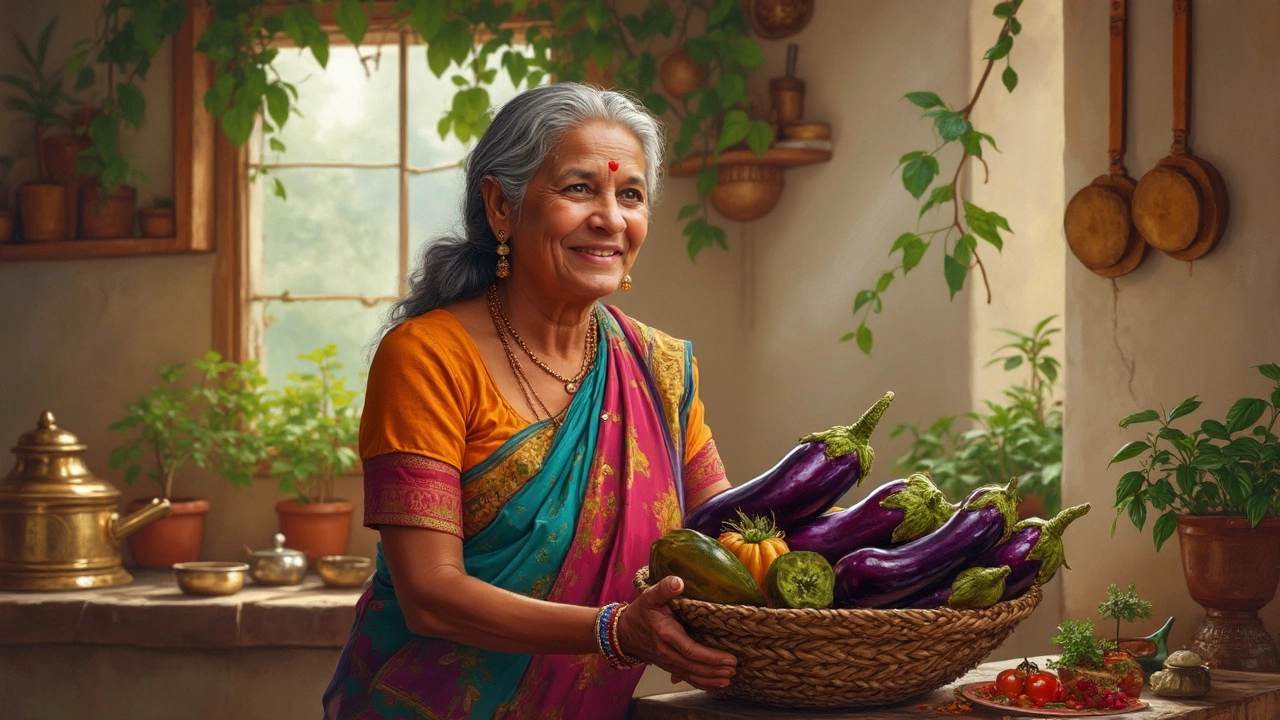Brinjal, or eggplant, grows in every corner of Indian kitchens, but is it actually good for you? This article breaks down the health benefits and possible downsides of brinjal, from its nutrition facts to the concerns people rarely talk about. Get tips on choosing and growing brinjal, plus fun facts you probably didn't know. Discover how this versatile veggie fits into Indian diets and whether you should eat it more often or watch out for anything. Straight facts, no fluff—just everything you need to know about brinjal.
Health Benefits of Gardening and Organic Farming in India
When you grow your own food or tend to flowers and herbs, you’re not just caring for plants—you’re investing in your own health benefits, the positive physical and mental outcomes that come from engaging with nature through gardening and farming. Also known as nature-based wellness, this isn’t just a trend—it’s a daily practice that lowers blood pressure, reduces anxiety, and sharpens focus, all while you’re digging in the soil.
The organic farming, a method of growing food without synthetic pesticides or fertilizers, focused on soil health and ecological balance. Also known as natural agriculture, it doesn’t just protect the land—it protects your body. Eating homegrown vegetables free of chemical residues means fewer toxins in your system. And when you compost kitchen scraps or use leaf mold to loosen dense soil, you’re not just improving your garden—you’re building stronger immune function through exposure to beneficial microbes. Studies show people who grow their own food eat more vegetables, sleep better, and report higher life satisfaction.
gardening, the regular activity of planting, nurturing, and harvesting plants, often for food or beauty. Also known as horticultural therapy, it is movement therapy disguised as leisure. Whether you’re repotting basil on your balcony, fixing a clogged drip emitter, or planting year-round flowers in India, you’re walking, bending, lifting, and stretching—without even realizing it. That’s 20 to 30 minutes of low-impact exercise, five days a week. And the mental reset? Even better. Watching a seedling push through soil, smelling jasmine in the evening, or harvesting your first tomato—these moments quiet the noise of daily stress in a way no app or meditation can match.
And it’s not just about what you grow—it’s about how you grow it. Choosing native Indian vegetables, avoiding styrofoam in your soil, or using homemade compost instead of chemical feeds all tie back to one thing: your long-term health. When you skip synthetic inputs, you reduce your exposure to endocrine disruptors. When you plant for continuous bloom, you create a calming visual rhythm that supports mental clarity. When you learn to dry out an overwatered houseplant or protect zinnias from rabbits without harsh chemicals, you’re training yourself to solve problems gently, patiently, and sustainably.
This collection of posts isn’t just about plants. It’s about how the simple act of tending to them transforms your life. You’ll find real advice on soil amendments that make your garden easier to work with, tips for choosing the right balcony orientation to get more sunlight (and more vitamin D), and guides on plants that bloom all year—so your connection to nature never fades. Whether you’re a beginner with a single pot of basil or someone managing a full kitchen garden, the health benefits start the moment you get your hands dirty. And that’s exactly what you’ll find below: practical, tested ways to grow better food, grow better plants, and grow better health—right where you live.
